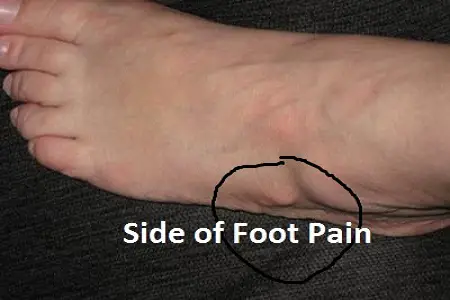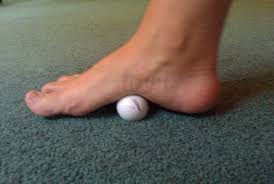
A pinched nerve in your foot or ankle can feel like a sharp, burning, or tingling discomfort that just won’t go away.
It may be severe or minor and may cause short-term or long-lasting issues, depending on the cause and many other governing factors.
The good news is that with the right combination of rest, gentle exercises, posture correction, and targeted treatments, you can relieve the pressure and restore comfort.
In the following sections, we’ll explore the causes, symptoms, treatments, exercises, and physiotherapy measures for managing a pinched nerve in the ankle.
Causes of Pinch Nerve in Ankle
A pinched nerve in the ankle, medically known as tarsal tunnel syndrome or posterior tibial neuralgia, occurs when the tibial nerve gets compressed as it passes through a narrow space called the tarsal tunnel—located along the inner side of the ankle, behind the bony bump (medial malleolus).
This tunnel houses several important structures, and when pressure builds up due to swelling, injury, or overuse, the tibial nerve becomes irritated or compressed.
Generally, the nerves are most vulnerable in some places of the body where they travel through narrow spaces and have soft tissues to guard them.
The compression may happen due to repeated motions or due to the keeping of the body in a single position for a long period, like an ankle bent during sleep.
A pinched nerve is also common during working-out sessions, sporting, driving, at times like pregnancy, etc.
This compression isn’t visible externally, but it can cause noticeable symptoms such as pain, tingling, burning, or numbness in the ankle and foot.
Recognizing these signs early is crucial, as untreated nerve compression can lead to chronic discomfort or even nerve damage.
Diagnosis
For diagnosing pinched nerves in the foot, athletes need to get a careful examination by an expert.
Electromyography is sometimes performed to substantiate the diagnosis of the pinched nerve and to determine the level of damage which has been caused to the nerve.
In case the pinched nerve is felt in the foot region, then a CT scan or MRI test can be performed to know the real cause and for starting the treatment as soon as possible.
Based on the diagnosis results and causes, treatment is to be followed further to let the patient feel better.
Symptoms of Pinched Nerve in the Ankle
The common symptoms of a pinched nerve in the foot or ankle are:
- Pain in the compression area
- Radicular pain like Sciatica
- Tingling feet or numbness
- Burning or electric sensation
- Dizziness or vertigo
- Feeling of weakness mainly after performing certain actions
It has been seen that these symptoms get worse when certain movements or activities are performed, like turning or twisting the ankle suddenly.
Pinched Nerve in Foot vs. Pulled Muscle Difference
A pinched nerve is often referred to and used in place of a pulled muscle by most individuals. However, it is important to understand that the pinched nerve and pulled muscle differ.
Although both of these conditions are caused due to the result of high-intensity exercises or sporting activities, there is a difference between them.
Pulled muscles are much easier to get than compared to pinched nerves as it is caused due to strenuous activity, bad posture while working out, overextended muscles after long hours of work, etc.
On the other hand, pinched nerves may also be caused by strenuous activities.
The pain caused due to pulled muscles may last for several days, whereas the pain due to the pinched nerve gets relaxed quickly, usually with few home remedies.

How to Get Relief from a Pinched Nerve in the Ankle or Foot?
The treatment for a pinched nerve in the ankle varies from person to person based on the symptoms and their causes.
A simple test for the injured part may benefit a lot, while performing tough sports activities may surely worsen the problem.
If the signs of pain persist and get severe, then it is advised to consult a doctor immediately.
Probably, you may require some specific treatment to minimize the problem of the compressed nerve.
Based on your problem, your podiatrist may advise a few of these treatments for a pinched nerve in the ankle:
Ankle traction: Ankle traction relieves pressure on the pinched nerve and is very much beneficial for treating the pain caused due to these problems.
Using an ankle traction device at home (under proper supervision) is also helpful in reducing the weakness, pain, and numbness or discomfort associated with the pinched nerve.
The process helps relieve swollen and irritated nerves, thereby healing the nerves in your foot faster.
A soft brace or a splint that limits the ankle and foot motions and lets the muscles rest for a longer period can also prove much helpful in fighting pinched nerve problems.
When you use a brace for healing your ankle, it will immobilize the foot and provide complete support for getting the pain relief fast.
In case you had an injury in your foot region, using these braces for the ankle ensures that the injury does not grow bigger by the movements. And this gives time for the injury to get healed over time when used regularly.
Muscle relaxers for a pinched nerve in the ankle are often prescribed by doctors to relieve agonizing episodes of pain. Muscle relaxers work differently than normal drugs as it targets the central nervous system and brain.
These offer a calming effect on the body, which helps to feel less or no pain at all. Above all, these are not addictive like other muscle relaxants or pain relievers.
Consuming more calcium and potassium-rich foods can be the best solution for treating pinched nerve problems.
Lowering calcium and potassium levels in the body is one major factor that triggers the risk of getting pinched nerves more often.
Taking an appropriate amount of calcium and potassium-rich foods and calcium supplements, on the other hand, promotes nerve health and lowers the chances of getting a pinched nerve.
Pain and inflammation relieving medications like injection or nonsteroidal anti-inflammatory drugs are additionally used to reduce the pain and swelling caused due to a pinched nerve.
Make sure that you consult your doctor before trying them out and follow the dosage carefully as recommended by your physician. Also, check and know about the possible side effects of using them before trying.
In certain cases, surgery is advised when the problem does not respond to the drugs and other types of treatment options.
A pinched nerve in the ankle causing vertigo is many times relieved by surgical methods where the bone causing nerve compression is removed by the surgeon.
In addition to the above, it is advised to try these home remedies for preventing and relieving a pinched nerve in the ankle:
- A hot shower once or twice a week
- Getting a professional massage or using a handheld self massager
- Taking enough rest and using the best leg wedge pillow for easing pinched nerve
- Lying flat with a rolled-up cloth or a towel placed under the ankle for maximum comfort
Ice or Heat: What Should Be Used for a Pinched Nerve in the Ankle?
An ice or cold pack is generally used for reducing the inflammation, swelling, and discomfort caused due to a pinched nerve in the foot by contracting the blood vessels and enhancing circulation.
Hot compress wraps, on the other hand, provide relaxation and pain relief to the muscles, blood vessels, and nerves after the swelling is gone.
Many people find combining both of these therapies useful in curing the pinched nerve and pulled muscles in the ankle.
But remember, as hot and cold therapies respond differently, you must use the best one that can help relieve the pinched nerve pain.
If you decide to use both, just make sure that you try the cold compress (in case swelling exists) first and then the hot one for relaxing. The ultimate goal should be to fix the problem and find relief.
The conclusion
Simply put, a pinched nerve in the ankle is your body’s warning signal—pain and irritation occur because a nerve is under pressure.
Whether it’s caused by tight shoes, overuse, injury, or nerve compression like tarsal tunnel syndrome, the pain can easily disrupt your daily activities.
Early diagnosis and treatment can prevent complications and help restore normal nerve function.
People searched for:- pinched nerve in ankle




